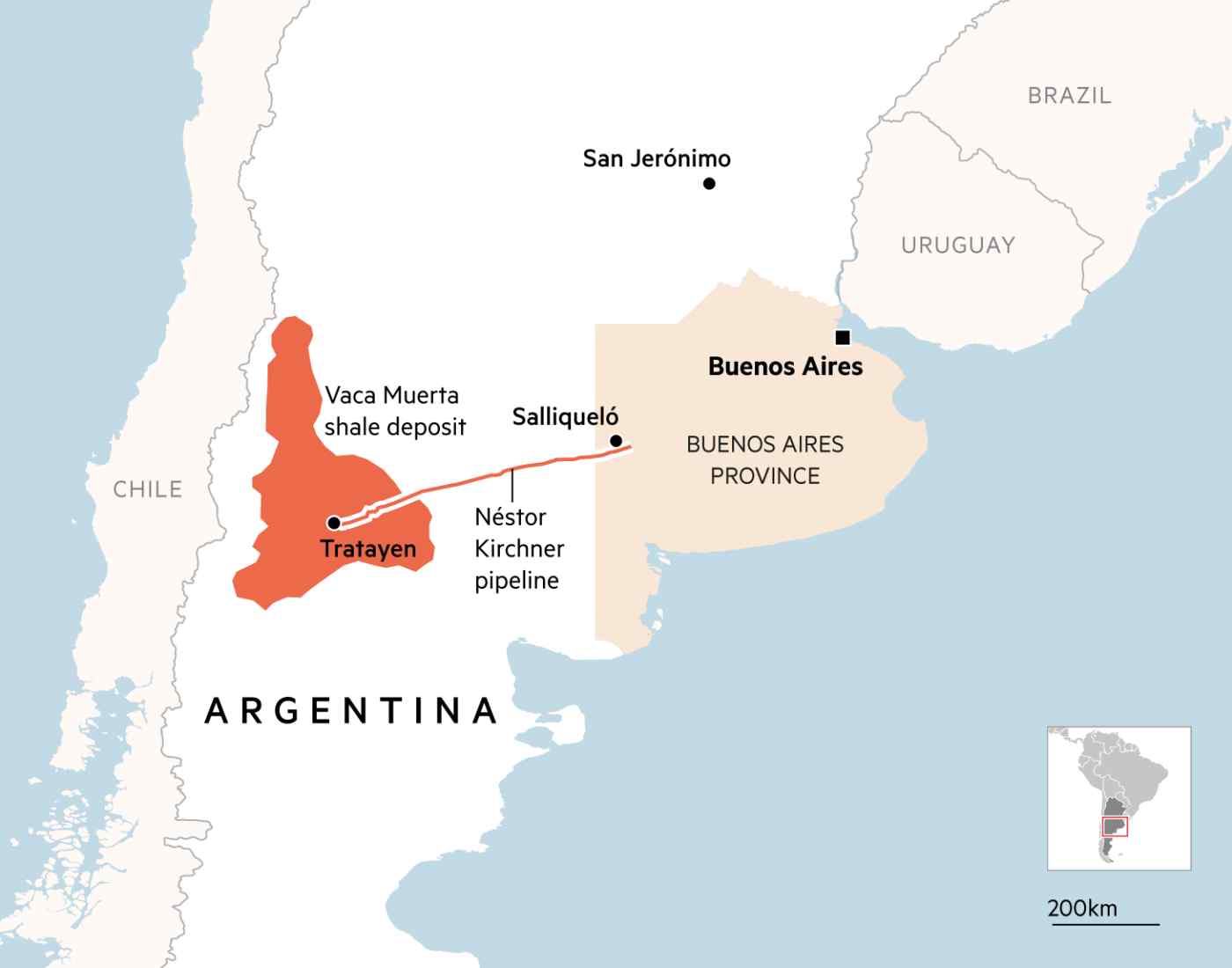
Natural gas from the world’s second-largest shale gas reserve in Patagonia will reach Buenos Aires in the coming weeks through a new pipeline, marking a milestone in Argentina’s push to become a big gas exporter despite its economic turmoil. The 573km pipeline will relieve a bottleneck at Vaca Muerta, a shale deposit larger than Belgium that was discovered in 2010 in the province of Neuquén.
“From last year to 2030, we’ll go from a negative energy [trade] balance of $4.6bn to a positive one of approximately $18bn,” Royón said, noting that this would make energy Argentina’s second-biggest export after agricultural products and a source of much-needed dollars.
The reserve contains 8.7tn cubic meters of gas and 16.2bn barrels of oil.
Argentina exports some gas to Chile, but its ambitions are far greater. The country also aims to scale up global and regional sales of more easily transportable oil from the Vaca Muerta formation. In May, consultancy Rystad Energy projected that by 2030 the field’s oil production could top 1mn barrels per day, more than triple current levels, if investment is maintained. In the short term, the cash-strapped government says the new state-financed pipeline, which cost about $2.5bn, industry analysts estimate, will save Argentina $1.7bn this year and $4bn in 2024. Those savings will result from the country ceasing to buy LNG and Bolivian gas.
But much work remains to get Vaca Muerta’s gas moving around South America and beyond. The government will soon tender a series of pipeline projects designed to unlock the market of Argentina’s giant neighbour Brazil and increase capacity for exports to Chile and Uruguay. One aim is to extend the Néstor Kirchner pipeline to San Jerónimo, about 250 miles from the Brazilian border, by next year. Brazil’s national development bank will fund a third of the $1.9bn price tag, and Royón said in May that Chinese group Power China is also interested in offering financing.
Another objective, also pegged for 2024, will reverse the flow of a pipeline in northern Argentina built to bring in gas from Bolivia, whose gas industry is in decline, at a cost of $800mn.